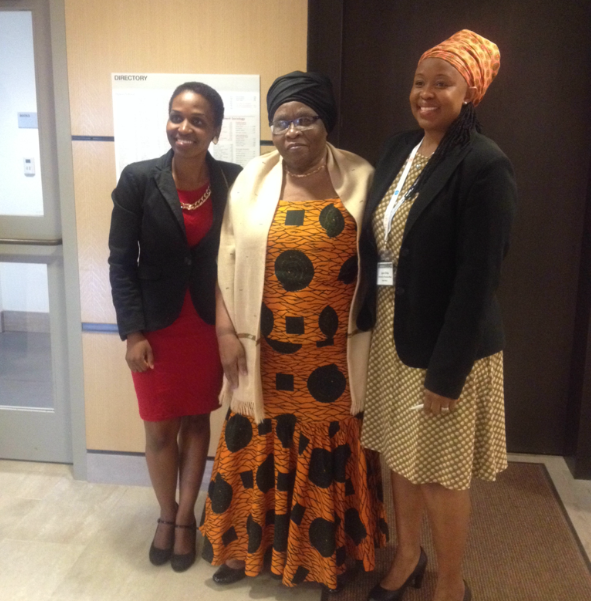“It will take the transformation of institutions to transform the livelihood of farmers.” -Joyce Thamaga-Chitja, University of KwaZulu-Natal, GFS 2015.
Policies and institutions will play a critical role in facilitating the next iteration of a Green Revolution, a sentiment echoed throughout the 2nd International Conference on Global Food Security. Whether this will take the form of M. S. Swaminathan’s “Evergreen Revolution” or Prabhu Pingali’s “Gene Revolution,” experts across multiple disciplines recognize the need for agricultural and other policies to manage the structural transformation in the developing world and meet the challenge to feed 9 billion in the next 35 years.

Yet, policymakers must understand that good agricultural policy has impact beyond food production. In the opening session of the conference, FANRPAN’s Lindiwe Majele Sibanda noted that agriculture offers solutions to combat high youth unemployment. Policies that can incentivize young people to engage in the agricultural sector have the potential to improve unemployment levels while increasing agricultural productivity. Joyce Thamaga-Chitja of the University of KwaZulu-Natal echoed these sentiments when referring to South Africa’s “catastrophic” unemployment rate and the potential for policies to tackle both youth unemployment and increase agricultural production.
Effective policies should focus on improving smallholder farmers’ access to agricultural markets. In her keynote address, Eleni Gabre-Madhin urged policymakers to pursue channels that would empower smallholder farmers to negotiate contracts with traders. For example, informal exchanges between farmers and traders in Indonesia’s shallot market, highlighted in a presentation by the University of Alberta’s Victoria Zeppa and Sandeep Mohapatra, arise from the lack of market access and price uncertainty in remote areas. Research on market access must also be updated in our ever-changing world. Antony Chapoto presented work on the role of assembly traders in Zambian maize markets suggesting that market access cannot simply be defined as distance to the nearest town. Even in rural Africa, agricultural markets are becoming increasingly complex, and our policy-oriented research must reflect that reality.
South-South cooperation will also play a key role in the development of sound policies and institutions. Nadia Goodman and Christiani Buani of the WFP Centre of Excellence against Hunger (Brazil) demonstrated that social protection policies, such as school-feeding programs in the Gambia and Bangladesh, benefit from the lessons of similar programs implemented in Brazil. While gatherings like the International Conference on Global Food Security offer opportunities for the cross-fertilization of multidisciplinary research and strategies for designing effective policy, more South-South dialogue is needed to discern best practices for nutrition-sensitive food security programming.
Research is leading this effort through project evaluation and cross-country comparisons aimed at showing policymakers the effectiveness of certain interventions. For example, a synthesis of research resulting from rigorous impact evaluations of the World Food Program’s Purchase for Progress (P4P) pilot was presented at the conference by Erin Lentz of University of Texas and Joanna Upton of Cornell University. They found that farmers not associated with P4P were more likely to engage in off-farm activities, begging the question: do large-scale, cash transfer programs discourage farmers from investing in income diversification and, if so, what are the ways policies could be tailored to encourage pro-poor growth while supporting off-farm income generation?
However, research can only do so much, and political will is “an essential ingredient for elevating food and nutrition security into policy agendas,” as recognized in a presentation by Lintelo and Lakshman (2015). Their work seeks to measure political commitment to end hunger and improve nutrition. For this reason, we were heartened that the First Lady of South Africa Mrs. Gertrude Sizakele Khumalo-Zuma (pictured above with conference presenters) and six parliamentarians from Ghana attended last week’s conference. Moving forward, we hope researchers will continue to engage and communicate with policymakers during the design and implementation of policies and programs, focusing on those interventions that offer the greatest potential for improving food security for the world’s poor.

